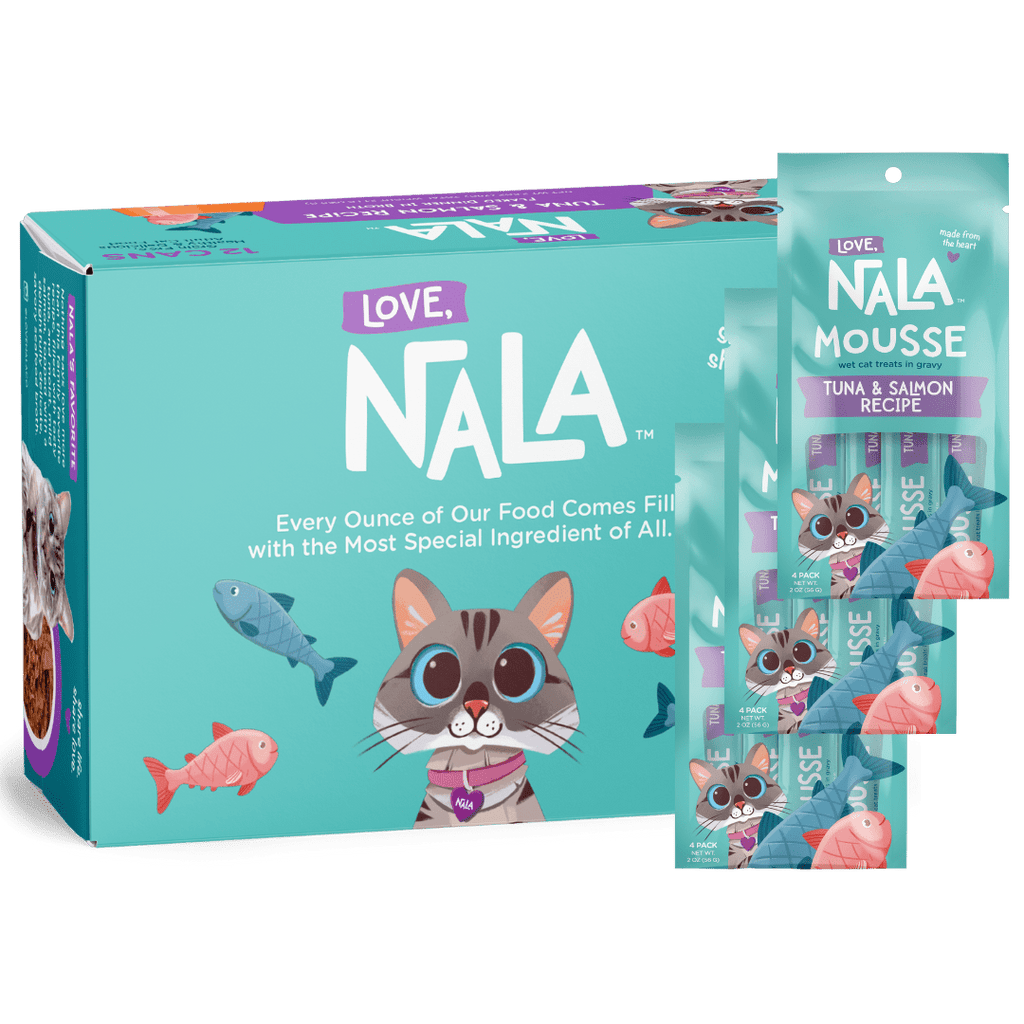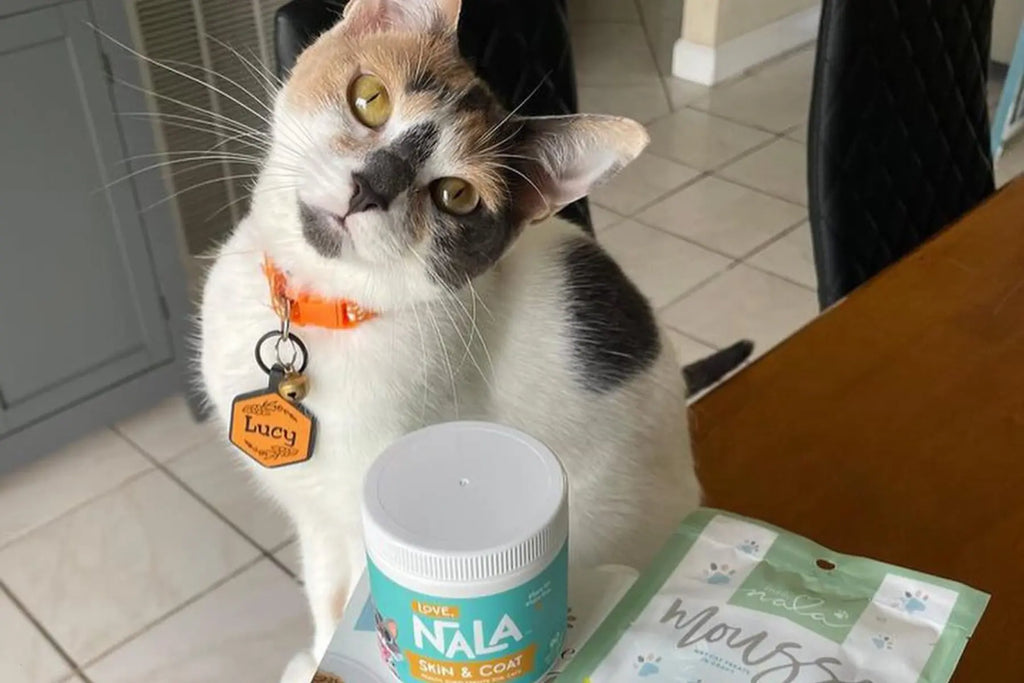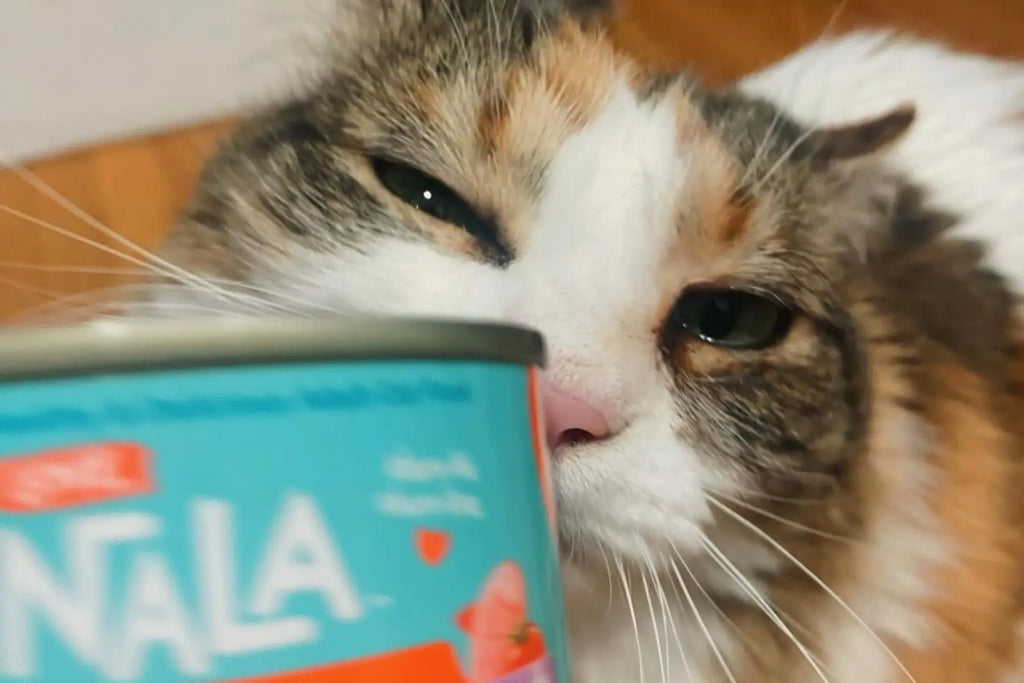As a cat owner, ensuring your furry friend's diet is nutritious and balanced is essential. One popular option for enhancing your cat's meals is canned chicken for cats. This blog post delves into the various aspects of canned chicken as a dietary choice for felines, examining its nutritional profile, benefits, and considerations for integrating it safely and effectively into your cat's diet.
The Protein Profile of Canned Chicken
Lean protein, which is abundant in canned chicken, plays a pivotal role in maintaining a cat's health. This type of protein is crucial for building and repairing muscles, supporting a healthy immune system, and contributing to overall bodily functions. Unlike proteins with higher fat content, lean protein in canned chicken for cats provides essential nutrients without contributing to weight gain or obesity, which is a common concern in domestic cats. By incorporating lean protein from canned chicken into a cat's diet, owners can support their pet's muscle mass and energy needs without the risks associated with excess fat.
Amino acids are the building blocks of proteins, and each type of protein source offers a different profile of these vital nutrients. Amino acids in canned chicken for cats include taurine, arginine, and methionine, which are essential for cats. Taurine, in particular, is a crucial amino acid that cats cannot synthesize in sufficient quantities on their own. It supports heart health, vision, and reproductive functions. Arginine aids in the removal of ammonia from the body, while methionine is essential for skin and coat health. The amino acid profile in canned chicken aligns well with the dietary requirements of cats, making it an excellent protein choice.
When comparing canned chicken to other protein sources commonly found in cat foods, such as beef, fish, or plant-based proteins, it's essential to consider digestibility and the amino acid profile. Chicken is generally highly digestible for cats, meaning that they can efficiently use the nutrients it provides. Additionally, the protein in chicken is closer to what cats would naturally consume in the wild, making it a more suitable option for their digestive systems. On the other hand, some plant-based proteins may lack certain essential amino acids and are not as easily digested by cats.
While canned chicken is a beneficial protein source, not all products are created equal. It's vital to assess the quality and safety of the canned chicken you choose. Look for products that specify the chicken is human-grade and free from harmful additives or preservatives. Be wary of products with vague labeling or those that include meat by-products, as these may not provide the same quality of protein. Also, it's important to ensure that the chicken is properly cooked to prevent the risk of foodborne illnesses, which can be harmful to both cats and humans.
Hydration and Moisture Content
Hydration is vital for cats, influencing everything from kidney function to digestion. Moisture-rich canned chicken for cats provides a natural source of water, helping to keep them hydrated. Many cats have a low thirst drive and do not drink enough water, which can lead to chronic dehydration and associated health problems. Including moisture-rich foods like canned chicken in their diet can help prevent these issues and promote better overall hydration.
When compared to dry cat foods, canned chicken stands out for its higher moisture content. Dry cat foods typically contain only 10% moisture, whereas canned chicken can have moisture levels as high as 75-80%. This significant difference means that cats fed with canned chicken are likely to have a higher overall water intake, which is beneficial for their urinary and kidney health. It's important for cat owners to understand this distinction, especially for cats prone to urinary tract issues.
Proper hydration is not just about preventing diseases; it also plays a role in maintaining a cat's overall health and well-being. Adequate hydration aids in digestion helps maintain a healthy coat and skin, and ensures the proper functioning of bodily organs. By providing a diet that includes moisture-rich foods like canned chicken, cat owners can support their pet's health in a comprehensive manner.
Taurine and Essential Nutrients
Taurine, an amino acid found in animal-based proteins, is crucial for cats and must be present in their diet as they cannot synthesize it themselves. It's vital for heart health, vision, digestion, and reproductive functions. Taurine content in canned chicken for cats can contribute significantly to meeting their taurine requirements. However, the taurine levels in canned chicken can vary depending on the processing methods used. Therefore, it's important to choose products that specifically cater to a cat's dietary needs, possibly supplemented with additional taurine.
While canned chicken is a good protein source, cat owners must ensure that it provides sufficient taurine. Some canned chicken products may have reduced taurine levels due to the cooking processes, which can destroy or diminish this essential nutrient. Look for canned chicken brands that are formulated for cats and have taurine added back into the product.
Beyond taurine, other nutritional additives in canned chicken formulas can enhance a cat's diet. These may include vitamins like Vitamin A and B-complex, essential for skin health and metabolic function, respectively. Minerals like magnesium and phosphorus are also important for bone health and metabolic processes. When selecting canned chicken for cats, it's beneficial to choose products enriched with these nutrients, providing a more balanced and comprehensive nutritional profile.
While including canned chicken in a cat's diet, it's essential to balance it with other taurine-rich foods. Natural sources of taurine include organ meats like heart and liver, which can be offered as part of a cat's diet. This diversification ensures that cats receive a wide range of nutrients and prevents dietary deficiencies. Balancing canned chicken with other nutrient-rich foods helps cater to a cat's complex dietary requirements, providing a holistic approach to their nutrition.
Addressing Sodium and Additives
Cats require a diet low in sodium to maintain optimal health. High sodium levels in canned chicken for cats can lead to health issues like hypertension and kidney stress. It's essential to choose canned chicken products with low sodium content, especially for cats with existing heart or kidney conditions. Reading the nutritional labels on canned chicken products can help identify those with lower sodium levels, ensuring a healthier choice for your cat.
Canned chicken products can contain additives and preservatives that are not ideal for a cat's diet. These may include artificial colors, flavors, or chemical preservatives, which could potentially lead to allergies or digestive issues. Choosing safe canned chicken for cats that is free from these harmful additives and preservatives is crucial. Look for products with natural preservatives like vitamin E (tocopherol) or those labeled as having no artificial additives.
When selecting feline-friendly canned chicken options, it's important to consider the overall ingredient list. Ingredients should be simple, recognizable, and primarily consist of chicken. Products specifically formulated for cats are generally a safer choice as they are tailored to meet feline dietary requirements. Avoid canned chicken intended for human consumption, as these may contain seasonings and ingredients that are not suitable for cats.
Careful examination of canned chicken labels is crucial for choosing a safe product for your cat. Check for a statement of nutritional adequacy that confirms the product is formulated to meet the nutritional levels established by AAFCO Cat Food Nutrient Profiles. Additionally, verify the ingredients list to ensure the product is made predominantly from chicken and does not contain fillers like grains or unnecessary additives.
Integrating Canned Chicken into a Balanced Diet
When incorporating canned chicken for cats into their diet, it's important to consider it as part of a broader nutritional strategy. A comprehensive feeding plan takes into account the cat's age, activity level, health status, and specific dietary needs. Canned chicken can be a valuable protein source, but it should be combined with other foods to ensure a well-rounded intake of nutrients. Consulting with a veterinarian or a feline nutritionist can help create a feeding plan that appropriately integrates canned chicken, balancing it with other necessary dietary components.
To provide a balanced diet with canned chicken for cats, it can be beneficial to mix canned chicken with other types of cat food, such as quality dry kibble or other wet foods. This mixing not only enhances the variety of the diet but also ensures a broader range of nutrients. It's essential to ensure that the total dietary intake remains balanced, particularly in terms of protein, fat, and carbohydrate content, as well as essential vitamins and minerals. Introducing variety can also keep mealtime interesting for the cat, encouraging better eating habits.
Portion control is crucial when feeding cats canned chicken. Overfeeding, even with healthy foods, can lead to obesity and related health issues. The amount of canned chicken fed should be adjusted based on the cat's size, weight, and overall diet. Additionally, the frequency of feeding canned chicken should be regulated. It can be offered as a regular part of the daily diet or used as an occasional treat or supplement. Consistency in feeding routines and portion sizes helps maintain a healthy weight and prevents digestive issues.
Monitoring a cat's response to the inclusion of canned chicken in their diet is important. Observations should include changes in appetite, digestion, energy levels, and overall health. If a cat shows signs of digestive discomfort, allergies, or other adverse reactions, it may be necessary to adjust their diet. Regular veterinary check-ups can help assess the impact of dietary changes and ensure that the inclusion of canned chicken is benefiting the cat’s health. Adjustments to the diet should be made gradually to allow the cat's digestive system to adapt.
When selecting feline-friendly canned chicken options, cat owners should consider various factors to make informed choices. It is important to read labels carefully to check for sodium content, harmful additives, and confirm the presence of essential nutrients like taurine. Balancing canned chicken with other types of cat food is vital to provide a diverse and nutrient-rich diet. Regular monitoring and adjustments based on the cat’s response are key to ensuring that canned chicken is a beneficial component of their diet. Consulting with a veterinarian for guidance can help in creating a balanced diet that supports the cat's health and well-being.
In conclusion, while canned chicken can offer significant nutritional benefits for cats, it should be integrated thoughtfully into their diet. Understanding its nutritional profile, being mindful of potential concerns, and balancing it with other food sources are essential steps in ensuring that cats enjoy both the taste and health advantages of this food option. By making informed choices and observing their cat's health, cat owners can use canned chicken as a valuable part of a balanced and nutritious diet.




















